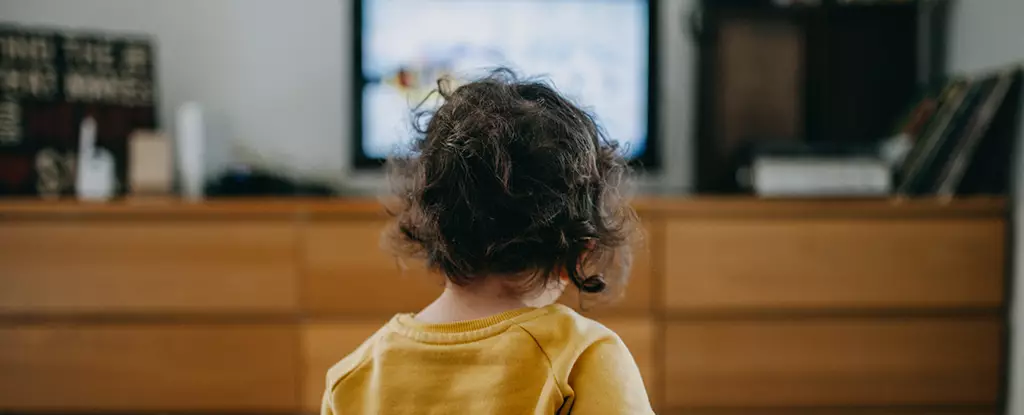Screens have become a modern-day parenting tool, offering a temporary escape for parents who need a break from the demands of childcare. However, while screen time may have its benefits in moderation, it comes with its fair share of pitfalls. One of the key concerns is that it can distract children from physical activity and imaginative play, potentially hindering their overall development. Additionally, a new study has found that excessive screen time for babies and toddlers is linked to atypical sensory-processing behaviors, which can have long-term consequences for their development.
The study, which analyzed data collected from the US National Children’s Study, focused on the screen exposure of babies and toddlers between the ages of 12 and 24 months. It also assessed their sensory-processing skills using the Infant/Toddler Sensory Profile (ITSP), a questionnaire completed by caregivers. The ITSP helps identify patterns of low registration, sensation seeking, and sensation avoiding behaviors in young children. Caregivers were quizzed about their child’s screen time at different ages, allowing researchers to make connections between screen time and sensory-processing behaviors.
The findings of the study revealed a strong correlation between increased screen time and atypical sensory-processing behaviors. Children who spent more time watching TV or videos before the age of 2 were more likely to exhibit these behaviors before the age of 3. The study identified three key atypical behaviors: “sensation seeking,” where a child actively seeks intense sensory stimulation; “sensation avoiding,” where a child is averse to intense sensations; and “low registration,” which refers to a lower sensitivity or slower response to stimuli.
These behaviors are indicative of a child’s sensory-processing skills and their ability to interpret and respond appropriately to sensory input. The study found that the risk of these atypical behaviors increased with higher levels of screen time per day.
The Implications for Development
The results of this study raise concerns about the impact of screen time on a child’s development. The atypical sensory-processing behaviors identified in the study are often associated with attention deficit hyperactivity disorder (ADHD) and autism spectrum disorder (ASD), both of which are conditions characterized by sensory processing difficulties and repetitive behaviors.
Research has shown that atypical sensory processing can lead to a range of developmental and behavioral problems, including hyperactivity, irritability, social difficulties, anxiety, and impaired executive function. This reinforces the need for a cautious approach to screen time, particularly for young children who are more vulnerable to the potential risks.
The study authors recommend that parents and caregivers take proactive steps to minimize screen time for children under the age of 2. They suggest that reducing screen time and incorporating sensory-processing practices delivered by occupational therapists can help mitigate the risks associated with excessive screen use.
Parent training and education also play a crucial role in minimizing screen time for young children. By being aware of the potential consequences and understanding the alternatives, parents can make informed decisions that prioritize their child’s overall well-being and development.
While this study provides valuable insights into the relationship between screen time and atypical sensory-processing behaviors, further research is needed to establish a causal relationship. It is essential to delve deeper into the long-term effects of screen time on sensory processing and behavioral development in children.
By expanding our understanding of these impacts, we can develop targeted interventions and guidelines to protect the health and well-being of young children. With more research and evidence-based recommendations, we can equip parents and caregivers with the knowledge and resources needed to make informed choices regarding screen time for babies and toddlers.
The risks associated with excessive screen time for babies and toddlers are becoming increasingly evident. Beyond the potential physical and cognitive implications, screen time also poses a risk to a child’s sensory-processing skills. As parents and caregivers, it is crucial to strike a balance and prioritize activities that promote physical, imaginative, and sensory development in young children. By limiting screen time and fostering alternative forms of engagement and play, we can help support healthy development and well-being in the early years of life.


Leave a Reply